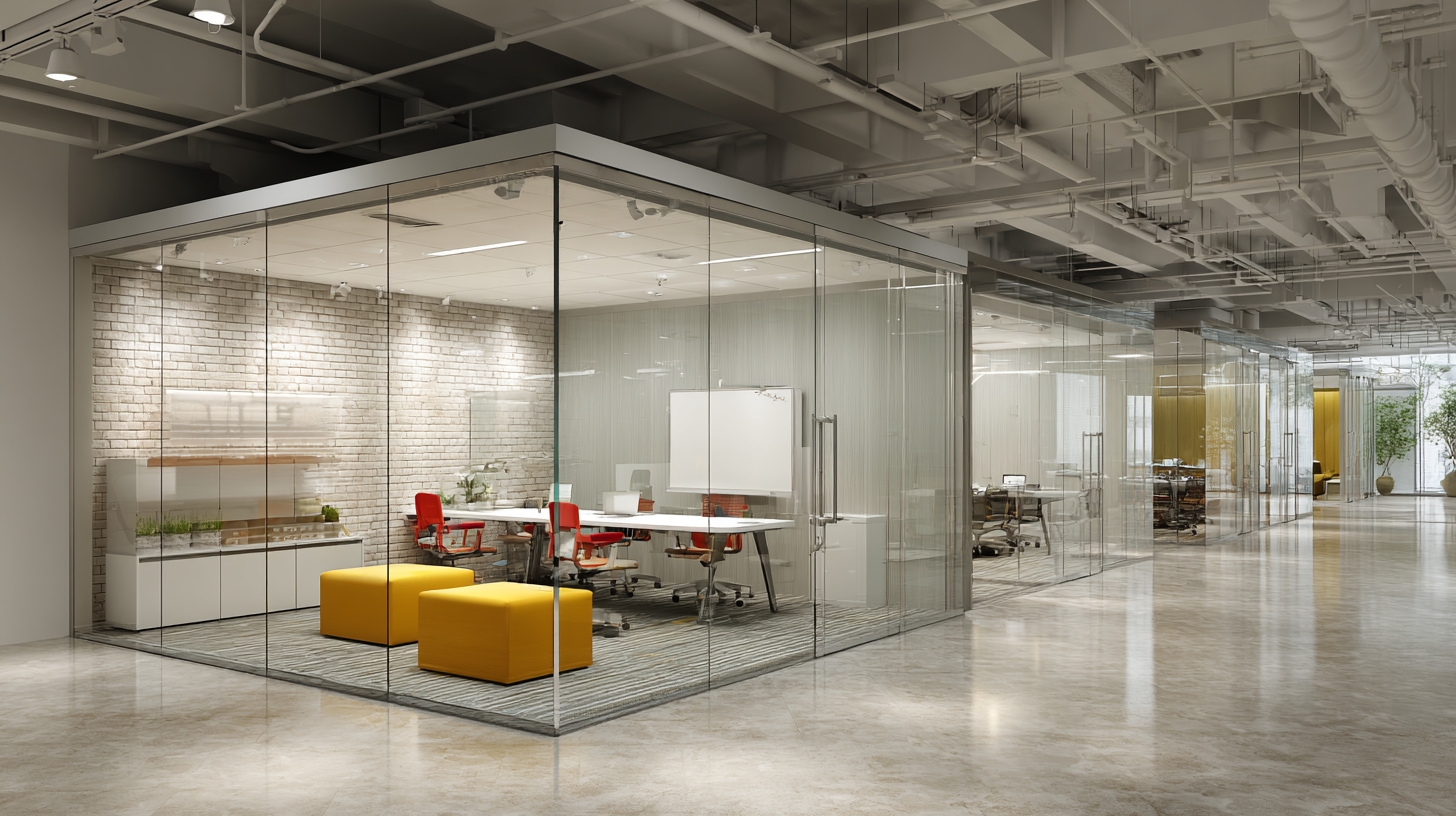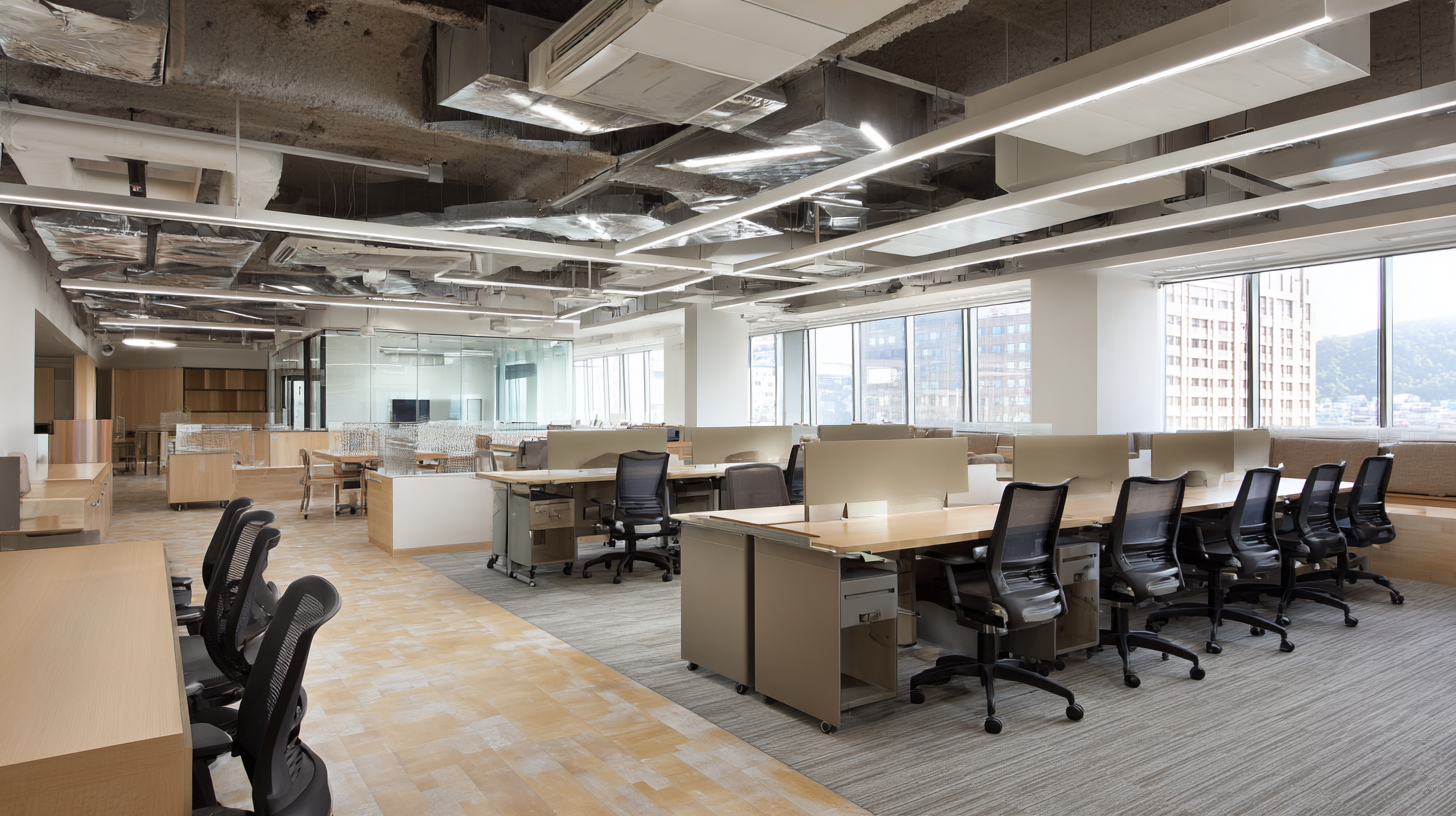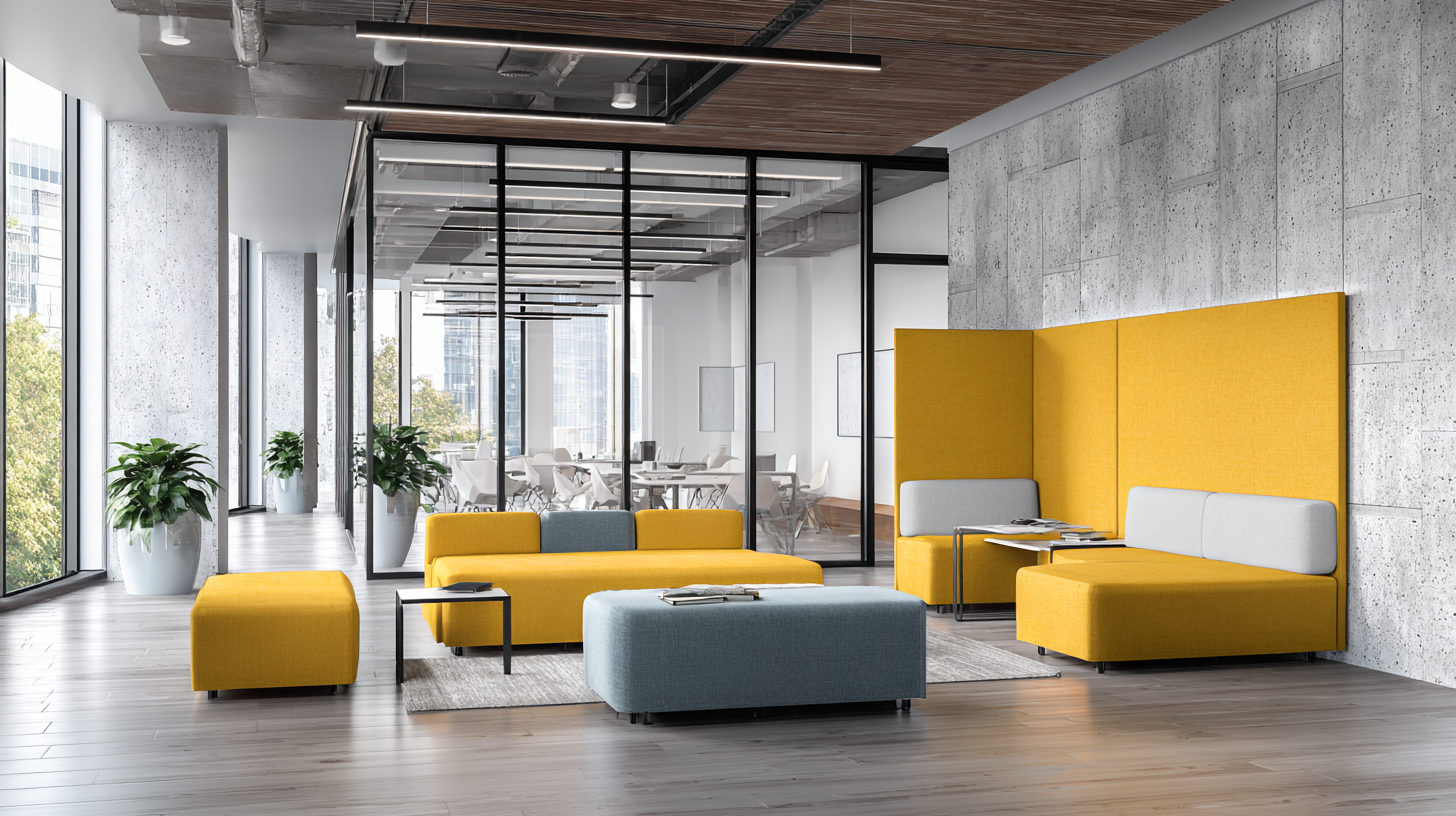Unlocking the Advantages of Best Institutional Furniture in Modern Workspaces
In today’s rapidly evolving work environments, the significance of Institutional Furniture cannot be overstated. As organizations strive to enhance productivity, creativity, and overall employee satisfaction, the choice of furniture plays a pivotal role. Institutional Furniture, designed specifically for various sectors including education, healthcare, and corporate offices, offers unparalleled benefits that cater to the unique needs of modern workspaces. This blog delves into innovative applications and case studies that showcase how the right furniture solutions can transform spaces, maximize functionality, and foster collaboration. By understanding the diverse types of Institutional Furniture available, businesses can make informed decisions that not only support their operational goals but also create inspiring atmospheres that boost morale and engagement. Join us as we unlock the advantages of choosing the best Institutional Furniture for your contemporary workspace.

Benefits of Quality Institutional Furniture in Modern Work Environments
In today's fast-paced work environments, the quality of institutional furniture plays a crucial role in enhancing productivity and employee well-being. According to a report by the American Society of Interior Designers, well-designed office furniture can increase productivity by up to 20%. This is vital for businesses aiming to maximize their output while maintaining a comfortable atmosphere. Quality institutional furniture not only supports ergonomic health but also contributes to a workspace that fosters creativity and collaboration.
Tip: When choosing institutional furniture, consider options that offer adjustable features. These allow for personalized adjustments to accommodate various body types, greatly enhancing comfort and reducing fatigue during long working hours.
Moreover, investing in durable, high-quality furniture can significantly reduce long-term costs. The National Institute of Building Sciences suggests that businesses often save about 10-15% on maintenance and replacement costs when opting for institutional-grade furnishings. High-quality materials ensure longevity and resist wear and tear from daily use, making them a smart financial choice.
Tip: Always select furniture that aligns with your organization’s culture and values. This will not only create a cohesive brand image but also promote a sense of belonging among employees, leading to improved morale and job satisfaction.
Designing Collaborative Spaces with Effective Furniture Solutions
In today's dynamic work environment, the importance of collaborative spaces is more pronounced than ever. A study by Gensler reveals that workplaces that prioritize collaboration see a 15% increase in employee engagement. This underscores the imperative for organizations to invest in institutional furniture that fosters team interaction and innovation. Effective furniture solutions are essential in crafting spaces that encourage brainstorming sessions, informal meetings, and spontaneous discussions, transforming traditional layouts into vibrant collaborative zones.

Moreover, the Human Resource Management Journal highlighted that employees in well-designed collaborative environments experience a 20% boost in productivity. This stems from a thoughtful approach to furniture arrangement that considers acoustics, comfort, and accessibility. Modular furniture, for instance, allows teams to adapt their spaces to fit specific needs quickly, nurturing a culture of flexibility and creativity. By investing in the right institutional furniture, companies can not only enhance aesthetic appeal but also drive efficiency and collaboration, ultimately leading to improved organizational outcomes.
Enhancing Employee Well-being through Ergonomic Furniture Choices
Creating a work environment that prioritizes employee well-being is essential in today's modern workspace. One of the most effective ways to enhance comfort and productivity is through the selection of ergonomic furniture. Ergonomic chairs and desks are designed to support the natural posture of the body, reducing the risk of discomfort and injuries over long periods of use. This not only boosts employee morale but also encourages longer, more productive work hours.
When considering ergonomic furniture, here are some tips to keep in mind: first, choose chairs that offer adjustable height, lumbar support, and breathable materials. These features ensure that employees can customize their seating to promote proper posture. Secondly, consider standing desks or adjustable workstations that allow employees to alternate between sitting and standing, improving overall circulation and energy levels throughout the day. Lastly, don’t forget about personal touches; allowing employees to personalize their workspace with plants or artwork can significantly enhance their sense of comfort and belonging.
Implementing these ergonomic solutions fosters a healthier workplace culture, leading to increased job satisfaction and reduced employee turnover. Investing in the right institutional furniture not only benefits the employees but ultimately enhances the overall productivity of the organization.
Unlocking the Advantages of Best Institutional Furniture in Modern Workspaces - Enhancing Employee Well-being through Ergonomic Furniture Choices
| Furniture Type | Key Benefits | Impact on Employee Well-being | Recommended Features |
|---|---|---|---|
| Ergonomic Office Chairs | Improves posture, reduces back pain | Enhances comfort and productivity | Adjustable height, lumbar support |
| Standing Desks | Encourages movement, reduces sedentary behavior | Lowers risk of obesity and related diseases | Height adjustable, stability features |
| Collaborative Workstations | Fosters teamwork and communication | Enhances job satisfaction and morale | Flexible arrangement, integrated technology |
| Comfortable Lounge Chairs | Promotes relaxation during breaks | Reduces stress and burnout | Soft materials, supportive structure |
| Acoustic Panels | Reduces noise pollution | Enhances focus and concentration | Aesthetic design, sound-absorbing materials |
Sustainability Trends in Institutional Furniture for Future Workspaces
In today’s evolving landscape of workspaces, sustainability is shifting from a trend to a necessity, particularly in the realm of institutional furniture. Modern organizations are recognizing that eco-friendly furniture options not only contribute to environmental health but also enhance overall workplace morale. By opting for materials sourced from reclaimed wood, recycled metals, and biodegradable fabrics, businesses are able to reduce their carbon footprint while promoting a culture of responsibility and care towards the planet.

Additionally, innovative designs in institutional furniture are paving the way for more functional and adaptable work environments. Pieces that are modular and multi-purpose not only optimize space utilization, but they also respond to the varying needs of a diverse workforce. As organizations prioritize employee well-being, furniture that incorporates ergonomic principles along with sustainable materials fosters a productive atmosphere.
The fusion of sustainability and design in institutional furniture is not merely a trend; it's a strategic approach to creating workspaces that resonate with the values of today’s employees, ultimately leading to enhanced creativity and collaboration.
Adapting Furniture to Technology-Driven Workflows in 2025 and Beyond
As we move into 2025 and beyond, the integration of technology in modern workspaces necessitates a reevaluation of furniture design. Traditional office layouts are increasingly giving way to dynamic environments that foster collaboration and creativity. This shift demands furniture that not only supports ergonomics but also integrates seamlessly with technology-driven workflows.
Modular desks that accommodate standing and sitting positions, along with adaptable seating arrangements, can enhance productivity by allowing employees to personalize their workspace according to their tasks and preferences.
Moreover, the rise of remote work and hybrid models means that institutional furniture must be versatile. Smart furniture that incorporates charging ports and connectivity solutions will become essential in accommodating the growing use of mobile devices and laptops.
By investing in furniture that can easily adapt to varying layouts and technological demands, organizations can create a more inviting and efficient workspace. The future of office design lies in finding harmony between physical comfort and digital functionality, ensuring that employees are equipped to thrive in a fast-paced, tech-driven environment.
